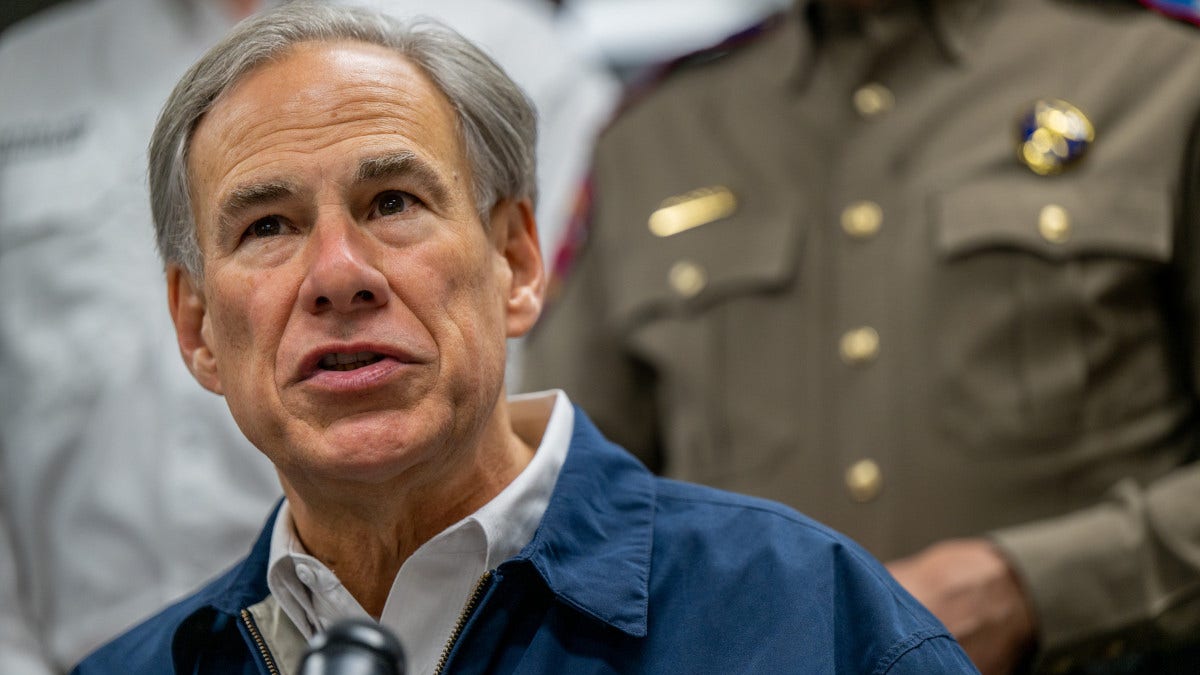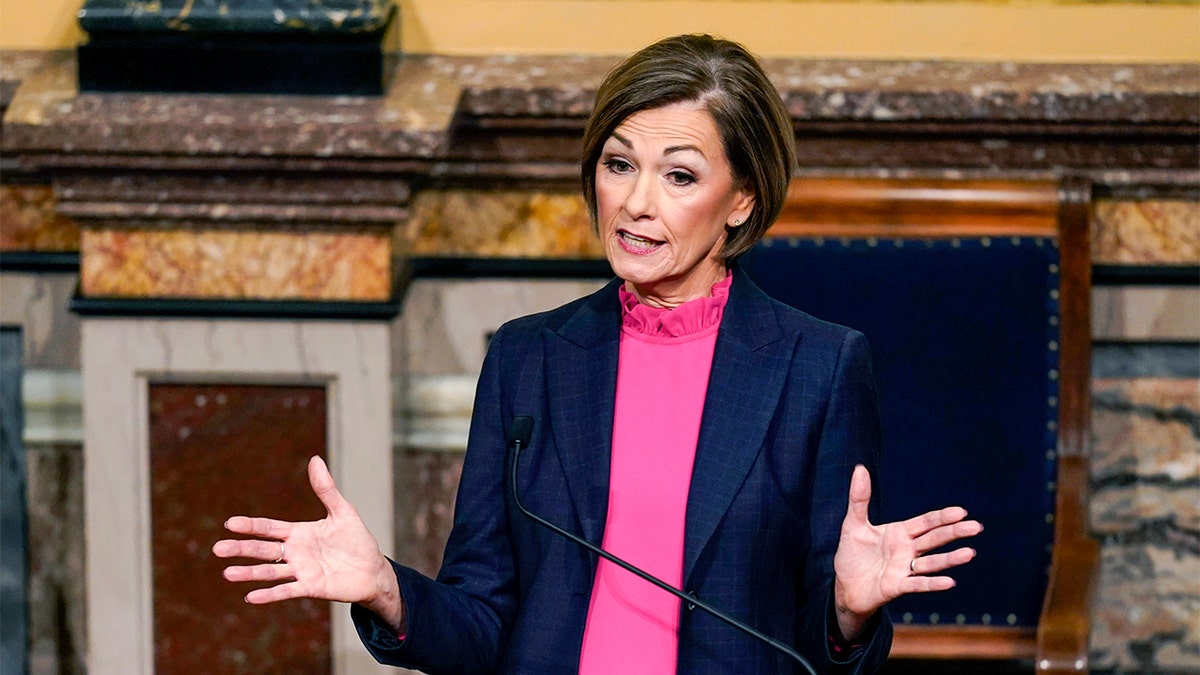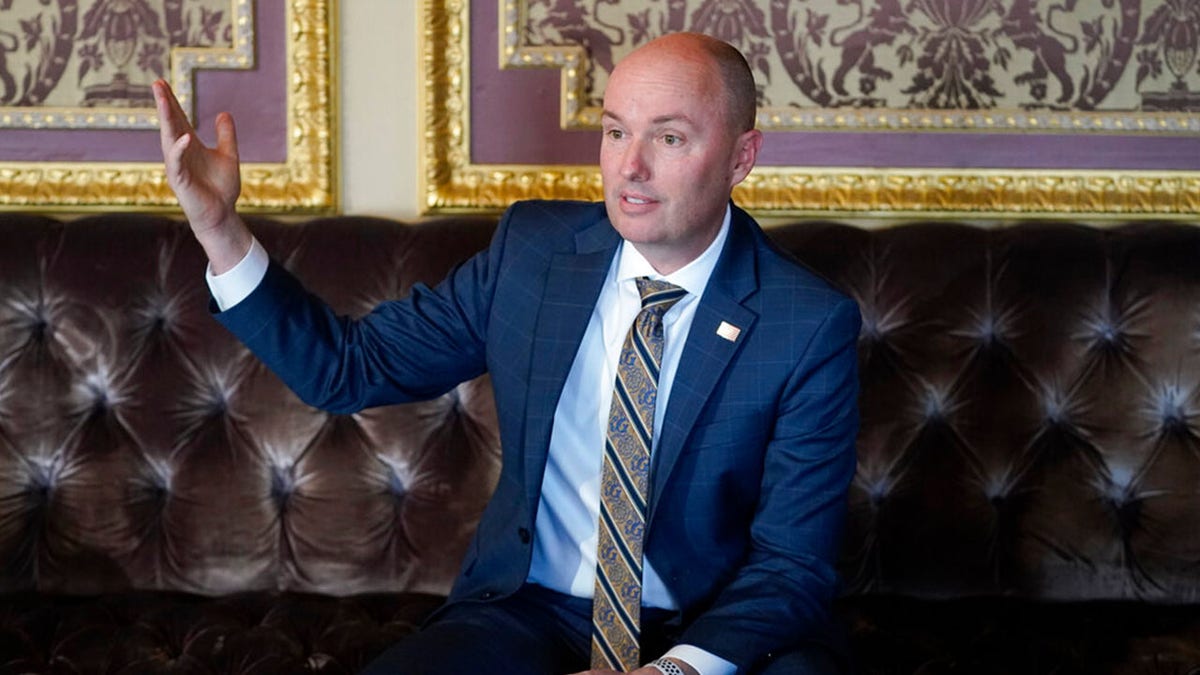Governor Kim Reynolds on school choice bill: 'This gets us to universal school choice'
Iowa Gov. Kim Reynolds highlighted her state's 'bold' school choice bill, the Students First Act, providing Iowa students funding to pay for private school.
The school choice revolution is going "pedal to the metal," setting the stage for possibly the best year in U.S. history for educational empowerment.
Across the country, governors are driving the 2023 school choice movement, and it’s happening fast.
More than 50 pieces of school choice legislation have already been proposed this year. The proposals include 36 education savings accounts (ESAs), 13 tax credits, and four voucher program bills. Many of these bills will expand, create or improve school choice, with at least a dozen representing major expansions. States that could potentially join the educational freedom revolution soon include Arkansas, Idaho, Indiana, Florida, Nebraska, Ohio, Oklahoma, South Carolina, Texas and Wyoming.

Gov. Greg Abbott speaks during a news conference on Jan. 31, 2023 in Austin, Texas. (Brandon Bell/Getty Images)
Texas Gov. Greg Abbott recently said during his State of the State address that it’s time to listen to the families and give them education freedom through education savings accounts. He emphasized wanting to expand the program because freedom is an emergency item this legislative session.
SCHOOL CHOICE IS THE RIGHT ANSWER FOR A ‘FREE, DIVERSE, EQUAL, SOCIETY:’ NEAL MCCLUSKEY
This welcomed push comes after decades of the state rejecting private school choice, but Abbott and the state legislature are optimistic about educational freedom, and parents are more mobilized than ever.
Although Texas is recovering from the educational impacts of the pandemic faster than many states, students have a long way to go. In the recent National Assessment of Educational Progress (NAEP) scores, Texas students showed serious declines in math, although reading held more steady.

Gov. Kim Reynolds spent three years calling on her legislature to expand choices and facing opposition from both Democrats and Republicans. (AP Photo/Charlie Neibergall, File)
The most telling results from the Lone Star AEP data are the significant gaps between how White students performed compared with their Black and Hispanic classmates. Hit especially hard in the early part of the pandemic, Black and Hispanic families suffered the most due to housing instability, high-poverty districting, and a lack of in-person learning. Black and Hispanic fourth graders scored 24 points lower on average in reading. In math, Hispanics scored 21 points lower and Black students 26 points lower than their White peers.
Iowa and Utah have already made headlines this year after passing universal education savings accounts meant to meet the needs of all students in their states.
In the Hawkeye State, before Gov. Kim Reynolds’ leadership, only 2% of the total student population had access to non-district school choice programs. Reynolds spent three years calling on her legislature to expand choices and facing opposition from both Democrats and Republicans. This year, she rolled up her sleeves with a newly elected Iowa House and passed a landmark bill that will bring much-needed educational change to a system that has not been meeting the needs of every family in the state. This school choice expansion will serve as a lifeline for thousands of Iowans by giving everyone access to the education provider of their choice.

Utah Gov. Spencer Cox speaks during an interview at the state Capitol on March 4, 2022, in Salt Lake City. (AP Photo/Rick Bowmer, File)
In Utah, Gov. Spencer Cox signed legislation granting an $8,000 scholarship to each eligible K-12 student. Before this legislation passed, less than 0.2% of families in the state had access to choice programs. This victory was years in the making, despite intense pressure from the opposition, and puts the power back in the hands of parents and students.
Up ahead on the school choice track is Oklahoma. After parents spoke loudly and clearly at the ballot box last November, Gov. Kevin Stitt made a call to fund students, not systems, and soon, two bills could create ESAs for all K-12 students in the Sooner State.
CLICK HERE TO GET THE OPINION NEWSLETTER
What is happening across our country is significant. We are seeing true policy diffusion where many states are engaging in a friendly competition to be the best school choice provider, and finally offering families more educational opportunities and freedom to choose what's best for their children. In states that have passed school choice, education dollars are finally starting to follow the student, not the institution.
We know that not all children learn the same way or have the same abilities, and school choice gives parents access to the state portion of their per-pupil education funding to be utilized toward a student’s specific needs. For communities struggling to catch up, this chance can be life-saving.
The momentum of school choice is giving students who have suffered long enough from inequalities and their zip codes an opportunity to succeed. We cannot continue living under the fallacy that the traditional education system serves all students equally.
CLICK HERE TO GET THE FOX NEWS APP
As a Latina mother and a school choice advocate, I have seen firsthand how educational empowerment lifts a student and makes believers of the naysayers.
The reality is that it has taken bold leadership to start this education revolution. Now is the time to keep our foot on the gas and bring opportunity to every child who needs it.











































